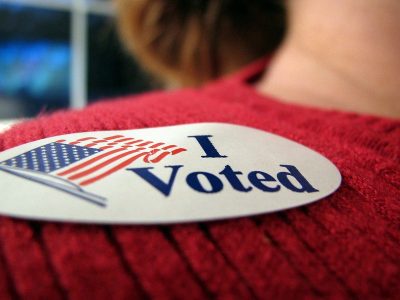Massachusetts residents who die after voting early in this year’s election will still have their ballots counted.

The state legislature passed a temporary law in July that allows dead voters’ absentee and early-voting ballots to be counted. All language in the legislation applies to dates in 2020, so the policy does not determine protocols for future elections.
Officials can begin tallying early ballots this year up to nine days before the Nov. 3 election, according to Debra O’Malley, a spokesperson for Secretary of the Commonwealth William Galvin’s office. That means it’s possible a voter may cast their ballot, have it be counted and then die before Election Day, O’Malley said.
The new law should make the ballot-counting process more efficient, O’Malley said, as deceased voters’ ballots will not need to be retrieved if they have already been processed.
“That is how this vote counting works in other states where they begin tabulating ballots ahead of Election Day as well,” she said. “Because unfortunately, once that ballot’s in the ballot box, you have no way to take it back out if the voter then passes away the day before Election Day.”
Processing ballots before the election would allow Massachusetts to know results the night of the election, O’Malley said, as opposed to several weeks after.
She added people who die after voting in person on the day of the election will also have their ballots counted.
“If you walk in and vote at 9 a.m. on Election Day and then you go home and unfortunately have a heart attack at noon and die,” O’Malley said, “your ballot still counts.”
Alex Psilakis, policy and communications manager at the voter participation advocacy group MassVote, wrote in an email the new law is necessary because Massachusetts has a longer-than-usual voting period — lasting about a month with mail-in voting included.
This law ensures all who vote during this period will have their vote counted.
“People vote, and they’re not planning on dying,” Psilakis said in a later phone call. “These are people that are living and plan on continuing living and working on existing within this democracy. They just happen to pass for whatever reason.”
Psilakis wrote he doesn’t foresee any public backlash or distrust in government resulting from the change.
Pam Wilmot, executive director of voting rights organization Common Cause Massachusetts, said because few people die each day in Massachusetts, this policy likely wouldn’t affect the election’s outcome.
Wilmot said counting dead voters’ ballots is a worthy tradeoff for speeding up ballot processing.
“I don’t think that any person in Massachusetts should be worried about this,” Wilmot said. “We’ve just expanded Election Day, so it’s the same thing just multiplied over a number of days.”
























































































































